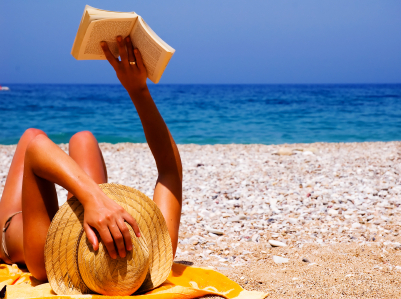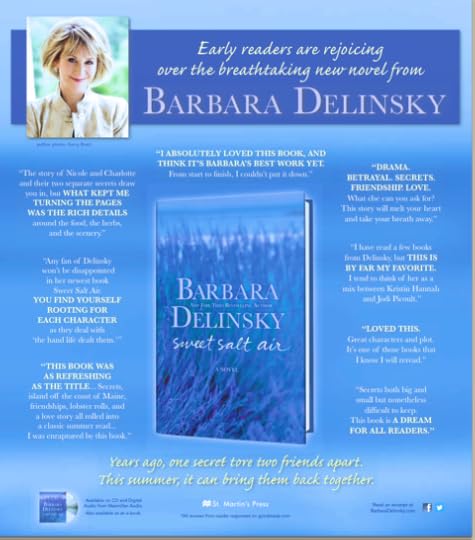Barbara Delinsky's Blog, page 9
December 6, 2013
Christmas music and me
 In theory, I don’t celebrate Christmas. I was raised lighting candles on each of the eight nights of Chanukah, with blessings and presents and latkes to match. But when I was growing up, everyone else on our street celebrated Christmas – everyone else in our school celebrated Christmas. And since I was in the school chorus, I learned Christmas carols.
In theory, I don’t celebrate Christmas. I was raised lighting candles on each of the eight nights of Chanukah, with blessings and presents and latkes to match. But when I was growing up, everyone else on our street celebrated Christmas – everyone else in our school celebrated Christmas. And since I was in the school chorus, I learned Christmas carols.
I loved them. Did I feel guilty about that? Oh yeah. On some level, I felt I was betraying my religion. But that didn’t stop me from learning my part to every carol (I was an alto) and giving it my all during school concerts and visits to nursing homes and hospital wards with my group.
If you’ve never experienced Christmas Eve as a non-Christian, please know that back in those days, there was nothing, absolutely nothing to do. Restaurants were closed. Malls were closed. Even movie theaters were closed back then. And television? Four channels, all showing reruns. Out of sheer desperation, we took to driving into Boston every Christmas Eve, where carolers clustered on the stoops of the townhouses that ringed Beacon Hill’s Louisburg Square. More singing. I loved it!
There are many, many more choices today, but what I love most are the myriad opportunities to enjoy seasonal music. Satellite radio has stations devoted to Christmas music from Thanksgiving on. And Pandora? How special is that? I have created half a dozen special stations, my favorite being ‘Peaceful Holiday.’
Oh oh oh, and Tchaikovsky’s “The Nutcracker?” There’s a whole other brand of Christmas music. For many years, one of my sons gifted me with a trip (with him) to that ballet. We never tired of it. I’m just waiting now for his kids to be old enough to go.
Carols move me. The tunes are lilting, the harmonies exquisite. And okay, I may not celebrate Christmas in a religious sense, but in terms of wishing for peace on earth and good will toward men, I’m wholly on board.
So. To you and yours, I wish – well, yes – peace and good will. Add good health to that, and we’re good to go for 2014.
November 3, 2013
Help Barbara understand All Is Lost

Please note: This blog contains spoilers. If that doesn’t bother you, read on.
I’m talking, of course, about the new Robert Redford movie, All Is Lost. Which I loved. But then, I’ve always loved Redford. I loved him with Jane Fonda in Barefoot In The Park and loved him with Barbra Streisand in The Way We Were. I loved him with Newman in Butch Cassidy and the Sundance Kid, loved The Sting, loved All the President’s Men. I could go on, but you get my drift.
Now All Is Lost. Redford isn’t with anyone here. Literally. There is no other actor in this movie. It’s just Redford, all alone on a sailboat in the middle of the Indian Ocean in increasingly dire straits.
He. Is. Amazing. And I don’t say that because I admire the guy. I say it because he tells a story of fortitude, regret, fear, relief, pain, and resignation without uttering a word. Seriously. Not a single word. It’s all about facial expression and body language.
Part of what makes this amazing is that the guy is 77. He looks and acts it in this movie, but is so subtle and articulate and real here that I was in awe. Some movies I’ve seen lately pour in on a little heavily about the age thing. Not Redford in this one. You see a man who is what he is as he fights to survive, calling on every bit of his knowledge of boats and the sea, even struggling to learn about celestial navigation and a sextant.
Now for the ending. Having read rave reviews that said nothing about this, I was unprepared. Oh, as I watched the movie, I wondered whether our man would survive. Then the ending came, the white light appeared, and the credits rolled. My husband said, “So amazing. He lives!” And I said, “Oh no. He dies!”
We went back and forth at dinner afterward, even searching blogs on my cell phone, which was when I learned for the first time of the controversy surrounding the ambiguity of this ending. My husband even woke up this morning with another argument for his side, which of course I rebutted.
I believe with all my heart that Redford deserves an Oscar for his masterful performance in All Is Lost. I don’t want to hear argument about that.
But the ending? If you’ve seen the movie, what do you think? Did our man live or die?
October 13, 2013
Page Change
Whoa. I just looked at my last blog, and realized how long I’ve been gone! Well, not really gone. I’ve been here at my desk the whole time, plugging away at my new book. But now we’re into October, and sweet corn is passé in New England. What’s in? Apples and cranberries (the picture below is actually of cranberries). Ginger and yams. Cool nights. Fall foliage.

I’ve lived in New England all my life. My favorite place to vacation is the desert, since its flora and fauna is so different from here, but could I live without our seasonal change? I doubt it. Fall in New England is breathtakingly beautiful. The leaves turn tree by tree, some red, some orange, some yellow. On a sunny day, the colors are brilliant, But bring on a strong rain, and those leaves hit the ground in no time flat.
If you haven’t seen my Facebook page, click here to see the cover photo I just posted. I took it in New Hampshire, where typically New England cemeteries stand at the stop of typically steep roads, where, in theory, the gravestones of typically beloved forebears are closer to God. The foliage is gorgeous in this shot, though, by now, the peak color is gone. Soon the trees will be bare and then covered with snow.
Sad.
Or not. When I was growing up, the year was defined by school vacations. That changed briefly in my pre-parenting years, when I was working outside the home. Once I had kids, the school schedule resumed, and fall meant back-to-school nights, basketball tryouts, shopping trips for school supplies and sweaters and coats. My kids are still into that schedule, now with their kids. But me? It’s about writing. Gray November days are perfect for hunkering in and going nowhere. Same with snowy ones in December and January. By February and March, the end of my book will be in sight, sparking a momentum all its own.
That new book? Aha. You were wondering about it, waiting patiently for early word. But first, let me thank all of you who read Sweet Salt Air and posted such amazing comments. When this kind of thing happens, I go into self-doubt mode, convinced – absolutely convinced – that I can never write a book as good and am therefore doomed to disappoint my readers. So let me say, right off the bat, that the book I’m currently writing is very, very different from Sweet Salt Air. I’ll need a title that is very different as well, though the powers that be haven’t come up with it yet. Here’s what I can tell you, though.
It’s about a mother and daughter who are forced to compete professionally for the same job.
It’s about the fragility of life and its knack of changing in a split second of time.
It’s about beautiful old Victorian homes and sleek white condos, racy convertibles and dusty pickups, rescue cats and bully dogs.
It’s about sex and the fifty-year-old woman; it’s about sex and the thirty-year-old one.
Lots of good stuff, dragging me back there right now. I’ll tell you more when the snow flies, but if you’re impatient, please know that I’m writing as fast as I can.
I’m also boiling cranberries. The simplest, healthiest seasonal dessert can be made by simply boiling cranberries in enough water to barely cover, until they get all fat and soft, adding sugar or honey for sweetness, stirring and cooling a little. If you add apple slices while cooking, your kitchen will smell amazing. If you add orange slices while cooking, then chop in a blender, you get a wonderful homemade orange-cranberry sauce. My husband and I love this for breakfast!
Got a good cranberry recipe?
August 22, 2013
In praise of sweet corn
 ‘Tis the season. We’ve had fresh sweet corn around here for weeks now, but I’m in Massachusetts, and that corn is from Georgia, which isn’t to say it isn’t good, simply that it isn’t local.
‘Tis the season. We’ve had fresh sweet corn around here for weeks now, but I’m in Massachusetts, and that corn is from Georgia, which isn’t to say it isn’t good, simply that it isn’t local.
Locally-grown produce is a big part of Sweet Salt Air, and though corn isn’t a major player in the book, I want to honor it here. I’m lucky enough, both at home and at the lake, I have access to farms that grow corn. In New Hampshire, that would be Moulton Farm. Since it’s on the main drag, corn fields are visible from the street. That’s an education in and of itself. The corn is planted in waves to effect a staggered harvest, meaning that we watch one field after the other sprout, grow, hit its peak and yield corn, then die off and be plowed down. In fall, there’s even a corn maze of what I assume is a special variety of corn that grows higher than the others.
But I’m jumping the season. Back to summer.
You don’t have to be a devout locavore to appreciate driving past a field of corn, turning into the farm stand, and buying ears that were growing on a stalk hours before. Just as my supermarket does now, the New Hampshire stand provides a barrel beside the corn bin for husks. I work there with others like me, shucking the corn so that I can take it home ready to cook.
How do you cook sweet corn? When I was a kid, we boiled it. I had dinner at a friend’s house last week, and she did that. I have to say, it was delicious – but then, anything someone else makes for me, even a cup of tea, is always delicious simply because of the thought involved.
Me? I don’t boil my corn. That’s one more big pot that you have to wash afterward, and I’m as lazy a cook as you’ll find. No, I either butter and salt each ear, wrap it in foil, and grill it along with chicken, steak, or shrimp, or I microwave it.
How do you do it? Do you think there’s a difference in taste?
Which leads us to how to eat sweet corn.
The most obvious way is on the cob. You can stick those little handles into the ends, roll the corn in butter, sprinkle a little salt on top, and munch at it, round and round, one end to the other. We don’t usually bother with handles. On occasion, we don’t even bother with the butter or salt. Good fresh sweet corn is wonderful all on its own.
And that leads to other ways to eat it. For instance, we love it as part of a salad. I always buy more ears than I’ll need so that I have an extra two or three. Let the corn cool, cut off the kernels by standing the cob up on a plate and shaving close to the cob with a sharp knife, and you have an amazing garnish for salad the next day or the day after that.
What about omelets? I heat my skillet over medium-high heat, add the corn and let it sit until it starts to lightly brown, then add eggbeaters and grated cheese, and scramble it all together. The corn adds crunch, sweetness, and just enough starch to eliminate the need for toast. Not that a piece of thick, grainy, whole wheat bread isn’t always welcome …
If there’s still corn left over, I eat those kernels with whatever I‘m having for lunch on a given work day.
I haven’t mentioned corn chowder, which I do love and occasionally make with bits of lobster, because it requires more steps than I’m usually willing to take in summer. Heck, it requires more steps than I’m usually willing to take any time of year, especially since we have restaurants nearby that do amazingly good lobster-and-corn chowders. Once in a while, though, I make the effort. Using that freshly picked sweet corn? It’s totally worth it.
Other ideas here? If you were to rhapsodize over sweet corn, what different verses would you write?
August 15, 2013
Too many ads
Do you see ads? I mean, do they actually register with you?
I ask this after reading an article in my local paper, The Boston Globe. It’s about Gen Y-ers, or Millennials, and though I’m way older than they are, I like the fact that I occasionally behave like them. They ignore ads, says this article. Having grown up in a sea of ads, they take them for granted, just don’t notice, tune them out.
The advertisement sea grows all the time. It’s kind of like global warming, y’know? Marketers are the melting ice cap, seeping into places they never used to be. Like the supermarket checkout slip. Mine emerges from the register covered with ads.
Well, that slip goes in the trash unread.
And that phone call from the cosmetic lady at Bloomingdales wanting to alert me to a weekend promotion, after assuring me she only wanted my phone number to let me know when my fave lipstick was back in stock? Pfffff. Big raspberry here.
The thing is, I don’t like merchants soliciting me. I have no trouble finding the mall. My car has been there so often it can practically do the drive on its own. When I need something, I go shopping. When I want something, I go shopping.
I don’t need ads to get my mind moving toward buy. But there they are – online, on TV, in the mail and the newspaper, on my phone.
How do you deal?
Me, I opt out. I mean that literally, when I’ve purchased something online and can un-check that little box allowing promotional email from that vendor. But I also mean it figuratively. Each night, we watch Brian Williams (new knee, Brian – way to go!), and I time my cooking to the placement of ads. For instance, I know that there are no ads for the first 10 minutes, so, after taking the fish from the fridge to warm a little, I don’t move from the TV. After that first news stretch, there’s practically one ad after each story. During the first ad, I put on the rice. During the second, I turn the gas to simmer and take out salad makings. During the third, I chop tomatoes, cukes, radishes. You get the point.
Then there are ads that I don’t get. Techie ones sometimes move so fast selling something I don’t understand that I just stand in front of the TV enjoying the bright colors without having a clue what’s being sold. But then there’s Cialis. Why in the world are those two people holding hands from separate bathtubs if the point of Cialis is sex?
There are times when ads are so unwelcome that they have a negative impact on me. When I’m forced to sit through one on the phone – say, when I’m put on hold calling the dentist to make an appointment and have to sit through an ad for invisible braces, before, quite conveniently, I’m put through to a receptionist – I’m so annoyed that hell will freeze over before I buy braces from that dentist.
I am susceptible to some ads. When I’m reading the news online and see an ad for a new scarf at Nordstrom, I’ve been known to click through. I’m a sucker for scarves, and have a long history with them at Nordstrom.com, which, of course, explains those ads on my home page.
Same with Zappos.
Are these targeted ads an invasion of my privacy? In that I’m being tracked, I suppose they are. But truly? It’s my free choice whether to look at those ads or not, and besides, getting an ad that fits me is better than getting a dozen that do not. I can’t tell you how often I stand at the recycle bin in my garage, dumping in printed brochures that have just been put in my mailbox. Those brochures don’t even make it in my door.
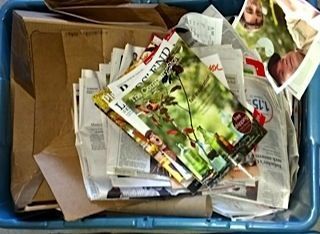
How about you? Do ads bug you? Any in particular?
August 8, 2013
I hear you!
The notes you send have a huge impact on me. The most obvious instance occurred in June, soon after Sweet Salt Air came out. One reader said she thought the book started too slowly. I promptly turned to my work-in-progress, reread the opening with a critical eye, then switched Chapters 1 and 2 so that the reader learns the opening plot twist sooner. It wouldn’t have worked for Sweet Salt Air. But it did work here.
I’ve always loved communicating with readers. Way back, it was mostly by snail mail. Now it’s through Facebook and my website, and if I don’t answer, it’s usually because there was no question asked! Just the fact of your taking the time to write to me makes me feel good; I thank you for that.
There’s always more mail when a new book comes out, but some of the comments coming lately have been so cool that I want to share a few. To set the scene, take a look at the new cover photo on my Facebook page. Those Adirondack chairs? That crystal-clean lake and blue sky? Pines, day lilies, astilbes? Put these things together, and you have GETAWAY, which is what my books represent, which is why they come out in the summer.
You all get that. You mention where you sat while you were reading Sweet Salt Air. Front porch? Back porch? Bath tub filled with bubbles? Poolside? Beach? Generalizing here, what are some of the interesting places you’ve been while reading a book?
Some of you talk about seeing a particular spot and having the details of a book you were reading there rush back. Has that ever happened to you? It happens to me as a writer. When we’re driving through the New Hampshire lakes region and pass the road to the Rockywold-Deep Haven camp on Squam Lake, I’m back on its shore hearing my very first loon and feeling the conception of Lake News.
One of you sent a photo of your cat reading Sweet Salt Air when you set it down for a minute. Another sent a photo of a dragonfly taking a rest on the book, another of Sweet Salt Air nestled in seashells. Clearly, this particular book works with the great outdoors. Are you able, say, to read a book at a noisy pool or a sandy beach? Do certain books lend themselves to particular reading situations? Would you want to read this book in front of a fireplace?
Many book groups have read Sweet Salt Air but you don’t have to be in a book group to discuss it with others. Do you ever do this? Or do you like to hold your thoughts on a book close until you’ve properly digested them?
As I look back on your comments, though, the one that gets me really thinking is “beach read.” Can we talk about that here? What is a beach read? Obviously we don’t have to be at the beach to read a beach read, but it’s a term that crops up every summer to describe books that take us out of our lives for a brief time. A beach read isn’t so dense that you don’t know what half the words mean. It isn’t so heavy that it casts a pall on your life for days. Rather, it leaves you with a sense of renewal.
At least, that’s how I define it. You?
August 1, 2013
Ever lost your cell phone?
Panic! We’re talking cold turkey withdrawal and then some, because cell phones have become key to our lives. When did that happen? Most everyone over thirty remembers when land lines were the go-to phone connection. When one of my sons decided to cancel his land line for cell-only status, I was worried. What if the cell malfunctioned in an emergency? What if it ran out of juice? What if he lost it?
That was ten years ago, and I’m talking a different game now. I’ve become a convert of sorts. Oh, I still have my land line. And, for the record, now that my son has a child, he has one, too, just in case. But for talk, email, texting, news, weather, note-taking, shopping, camera – the list goes on – I’m as dependent as the next guy on my hand-held device!
Which is why I lost my cool recently when I was driving back from the lake. I was alone in the car, and I was nearly back to Boston. My pocketbook was on the passenger’s seat beside me, but it had been suspiciously silence since I’d left the lake – no chirps of email or dinging of texts. Thinking I must have left it on vibrate following dinner at a restaurant the night before, I reached into my bag – and it wasn’t in its usual pocket. I groped around the larger cavity, pushing things out of the way. But I knew. I knew. I’d left it charging on the kitchen counter two hours north of where I was just then.
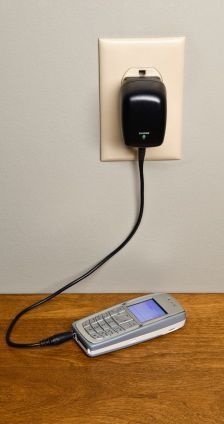 Call Steve. That was my first thought. Steve is my husband, and, since he had a bunch of chores to do at the lake and his own car to drive back, I prayed I could catch him before he left.
Call Steve. That was my first thought. Steve is my husband, and, since he had a bunch of chores to do at the lake and his own car to drive back, I prayed I could catch him before he left.
But, of course, I couldn’t call him, because I didn’t have a phone. Pay phone? Did they still exist? But the next rest stop was beyond my exit, and then I would be on local roads, where there were no rest stops, much less pay phones.
I kept driving. Kept thinking what would happen if my car died and I had no way to call for help. Kept thinking what would happen if one of our kids had a problem and couldn’t reach me. Kept thinking how frightened Steve would be if he was trying to reach me and couldn’t get through. Kept thinking of all the appointments I had in the coming week, to which I would have to go unplugged. Kept thinking of the texts I wouldn’t receive and the emails I wouldn’t be able to answer on the fly.
I felt naked. I felt frustrated, isolated, unprotected, disconnected. I felt foolish for forgetting to put the phone in my bag – then foolish for having forgotten that I had lived without one for years and could certainly do it again for a week.
But I needed a phone!
So, as I drove on, I considered Plan B, which was to call our neighbor at the lake and ask her to get my cell and put it in the mail. I considered Plan C, which was to pick up one of those limited access, quasi-disposable cell phones – and Plan D, which was to turn around and drive back two hours for the phone.
Which seemed a little silly, since I was nearly home.
I pulled into the garage, unlocked the door and using – yes! – our land line, called Steve. FYI, my husband is an inveterate dawdler. Most of the time, that drives me nuts. But not this time. As it happened, he had dawdled so much that he had just left the house. Devoted husband that he is, he pulled a U-ey, drove back, and got my phone.
Crisis averted.
Thinking back on it, I’m still slightly appalled. Am I the only one who’s become so dependent on her cell? Have you ever left yours somewhere? Or had it die on you? Or been in a no-bars zone where the thing was no good at all? How did you feel?
July 25, 2013
What does summer sound like?

Well, how appropriate. We’re at the lake, and I’ve decided to blog about what I hear. Cradling my laptop, I head through the kitchen porch toward the open deck when there’s a shout from inside. “Don’t let the screen door slap!” I won’t tell you whose voice it is lest I incriminate him, but suffice it to say that, after many years of resolving issues, I know how to handle the guy.
I let the screen door slap … softly. Out of defiance? No. Out of sheer necessity. The slap of a screen door is, to me, the essence of summer. It conjures up carefree days spent running in and out of the house, which is what so often happens at a lake house.
Here in New Hampshire, we call lake houses ‘camps.’ We’ve had ours for fifteen years, ever since Lake News came out, actually, and how lucky we are. Please know that I never take this place for granted. My favorite season is the dead of winter, when we drive down the old dirt road with enough food, books, and firewood to last the weekend.
But this is summer. That screen door is done slapping, and I’m sitting in an Adirondack rocker on a deck overlooking the lake. Visually, it’s beautiful. But I’m listening. Listening. Listening. It’s a game I play with my grandkids; I take them out here with me and ask, “What do you hear?” Everyday life is so busy and loud that we don’t often focus on sounds. But sounds enhance an experience, and I want their visit with us as rich as can be. Hence, the game.
What do I hear now?
I hear birds. I can’t see them; they’re lost in the pine needles, hemlock branches, and birch leaves of the woods surrounding the house. But they are truly lyrical this morning. Same with the chip-chip-chip-chip of chipmunks.
I hear a breeze. Feel it, too. Both sound and feel are gentle, healthy, welcome after a too-long stretch of stifling heat.
I hear kids. Love this sound. Is there anything happier than the squeals of water-play? Even the splash of bodies hitting the water from rocks, docks, and boats has its own charm.
Speaking of boats, there they are. Speedboats, fishing boats, jet skis – close my eyes, and the difference between them is marked.
Oh. There’s a loon. That mournful sound was my first love at the lake.
Suddenly now I hear a plane. They don’t come around often, and the sound isn’t as welcome as the others I’ve mentioned, but at least this one isn’t a jet. It’s either a little prop thing taking tourists on a flyover or a seaplane looking for a place to land.
Plane’s gone. Boats have moved out into the bay. Kids are in for breakfast. Or lunch.
And there it is, the voice of the lake itself, organic and unembellished, as it laps the shore. That sound and I go back a long way. I spent seven childhood summers as a girls’ camp in Maine; having worked my way up to the oldest bunk, I spent the last of those summers with eighteen other girls in a lodge (named, appropriately, The Lodge) away from the other bunks and literally six feet from the lake. We fell asleep every night to that lapping sound. Woke up to it, too. That was the only requirement I had when my husband and I were looking to buy a lake house. I had to be able to hear that lapping sound from time to time.
Feeling the peace of it now, I click SAVE, re-cradle my laptop, and head back into the house. I open the screen door, pause, pass through and let it slap shut behind me – because, sorry hubby, but aside from the sough of lake water against the shore, nothing says summer as sweetly as that.
What says it for you?
July 1, 2013
What’s with the happy ending?
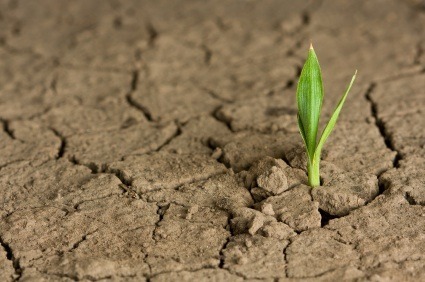
I’ve always written them. There are lots of reasons for that, many of which are listed below. On impulse, I even focused a recent SPEEDY BD SURVEY on whether my readers like their books to have them. The response was overwhelmingly positive. But then, that’s the nature of the women (and men) who like my books, and, let’s face it, my Facebook fans do or they wouldn’t be on my page.
Why do we like happy endings so much?
Because we’re optimists? Because we’re dreamers? Because we’re realists who know that life is filled with challenges, some of which succeed and some not, but we want our fiction to be filled with hope?
These are all good and healthy and productive reasons. We read about positive resolutions in our books and approach real life in a more constructive way. I don’t know about you, but when I finish a book that’s a downer, I want to go back to bed and sleep it off. That’s no way to approach life. I want my entertainment to lift me up, not press me down.
Entertainment. That’s an important word in this discussion. There are times when I read for education, and the happy ending isn’t as crucial. Likewise when I read for intellectual enhancement, say, something my book group will be discussing at its monthly meeting. Being a writer, I also read to see what a new, hot, heavily-hyped book is all about.
But entertainment is by far my favorite reason for reading fiction. I want to get lost in a book, be drawn into the life drama of characters I like, and I want those characters to succeed. At some level (I don’t need every little plot twist tied up with a bow), that means a happy ending. Call this kind of books escapist literature, but it gives me a boost.
Your thoughts here? Happy endings or not? Escapism or not? Entertainment, intellectual enhancement, curiosity? Do you feel that you’re being judged by the books you read? How do you handle that?
June 24, 2013
But do you like my book?
And so comes the Monday after the first weekend you’ve all have with my newest book. I sit on tenterhooks wondering, worrying, hoping.
Sweet Salt Air has actually been out and around for the sake of getting early reviews. Part of the promotional campaign leading up to its publication entailed sending Advance Reading Copies to more than a hundred book groups around the country. In return, they’ve posted reviews in blogs and on Facebook, Goodreads, Amazon, and the like. Excerpts of some of these reviews appeared in a New York Times Book Review ad on Sunday, June 16. Here’s the ad. Pretty, huh?
I try not to see reviews of my books. Some of you already know this, but I’ve stopped reading reviews of my books at online venues. It’s too upsetting. There may be twenty good reviews for one bad one, but it’s that bad one over which I obsess.
This time around, though, there’s Facebook. Many of the groups that received ARCs have met and discussed the book and have posted reviews on my Facebook page. Since I monitor this page closely – so that I can thank these early readers – I inevitably read their posts. And the great majority of their remarks have been amazing. These readers loved the island, the characters, the herbs, the food, and Bear. They loved the health crisis and the discussion of umbilical cord blood stem cells. Their groups discussed friendship, parenting, secrets, and love – all the things I had hoped that they would.
Then there are the others.
One woman complained about typos. I posted a comment explaining that Advance Reading Copies are uncorrected proofs.
One woman complained about grammatical errors. I posted a comment explaining that since I’m a stickler for correct grammar, what she may have taken to be errors was intentional – either house style or simply the way people think or speak.
One woman implied that her group thought having sex in the ocean was a laughable idea. I say, each to his own.
But how much should I say? On one hand, if a reader posts a negative remark on my Facebook page, don’t I have a right to defend myself? On the other hand, does that risk alienating someone who might otherwise become a fan of my work?
What do you think? Should I rebut criticism? Or should I just grin and bear it?



